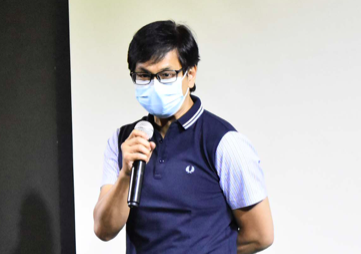Metro mayors set terms for lockdown

MMDA Chairman Benhur Abalos. Image from the MMDA website
Metro Manila mayors are in favor of a stricter two-week quarantine level for the capital region, but only if the national government would provide financial assistance to their affected constituents and give them a steady vaccine supply.
The local executives signed on Wednesday a resolution expressing their willingness to place Metro Manila under an enhanced community quarantine (ECQ) for two weeks after COVID-19 cases in the National Capital Region (NCR) were projected to reach 11,000 a day by end-September if nothing was done now.
At a press briefing on Thursday, Metropolitan Manila Development Authority chief Benhur Abalos said the mayors had an emergency meeting on Wednesday to come up with a game plan against the highly infectious Delta variant.
“We will not wait for hospitals to get filled. Our suggestion is to have more heightened restrictions,” Abalos said.
But under Metro Manila Council Resolution No. 21-15 series of 2021, the mayors listed two conditions that needed to be met before placing Metro Manila under ECQ again: the availability of financial assistance for the poor and an additional supply of vaccines for an aggressive inoculation program.
Article continues after this advertisementAbalos said the mayors agreed that an ECQ could not be implemented without financially helping the families that would once again lose income for two weeks.
Article continues after this advertisementThey also wanted an allocation of at least 4 million vaccines for the NCR that they committed to administer during the two-week period.
Stricter measures
A health advocate and former government adviser also warned on Thursday that the status quo was not enough to reverse an impending surge in Delta variant cases and a “pandemic of the unvaccinated” looms large in the coming weeks.
Dr. Tony Leachon said the government needed to impose a quarantine status higher or stricter than the current measures, specially in the NCR.
“You cannot [keep a] status quo because the numbers are not getting better,” he said in a phone interview.
Independent OCTA Research said that while it respected the government’s decision not to impose a lockdown, it insisted that a surge has started in Metro Manila and that tightening COVID-19 measures early as a precaution was the right thing to do at this time.
“This position is supported by leaders in the business sector and [our local governments],” the group said in a statement.
Leachon said a two-week lockdown could save the country from further hardships.
Since some of the economic front-line workers have already been vaccinated, he said businesses could ask them to report to work and temporarily let the unvaccinated work from home, if possible.
It is during the two-week lockdown that the government could buy time to prepare by ramping up vaccination, testing and tracing.
Once the Delta cases peak, Leachon said the government could no longer stop it from becoming a pandemic of the unvaccinated population.
More flexibility
The League of Provinces of the Philippines (LPP), meanwhile, asked the national government for more leeway and flexibility to determine on their own and the authority to implement the necessary quarantine status in case of sudden surges.
“The flexibility we are requesting [is] in situations where there are sudden surges in cases in a particular province, and there is an immediate need to regulate and even tighten the movement of people in and out of the area to arrest the further transmission of COVID-19 infections, most especially the Delta variant,” said LPP president and Marinduque Gov. Presbitero Velasco Jr. in a statement.
Velasco noted that a local government unit (LGU) would face pandemic issues unique from the others, for instance on the population size, available facilities, vaccination rate and even funds.
“It may be difficult, if not almost impossible, for the national government, including the IATF (Inter-Agency Task Force for the Management of Emerging Infectious Diseases), to take all of these factors into account and issue general guidelines for the governance of all LGUs whose conditions are different, volatile and continue to vary by the day,” Velasco said.